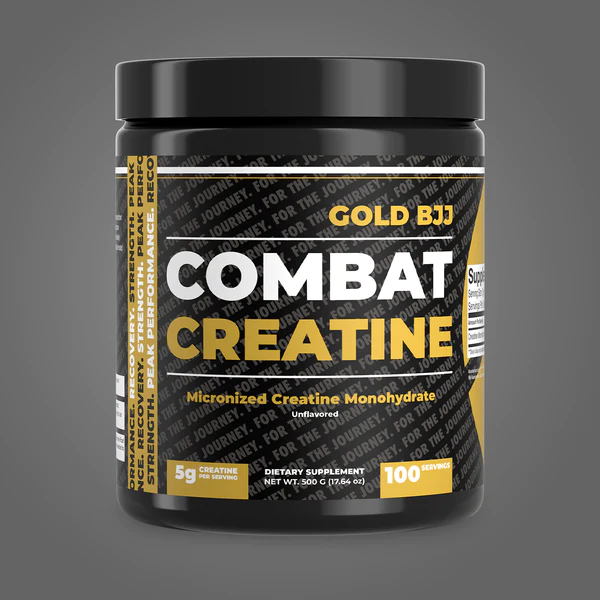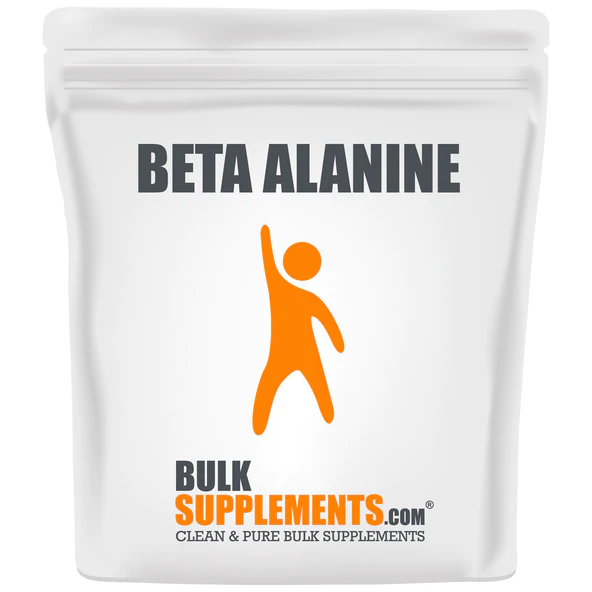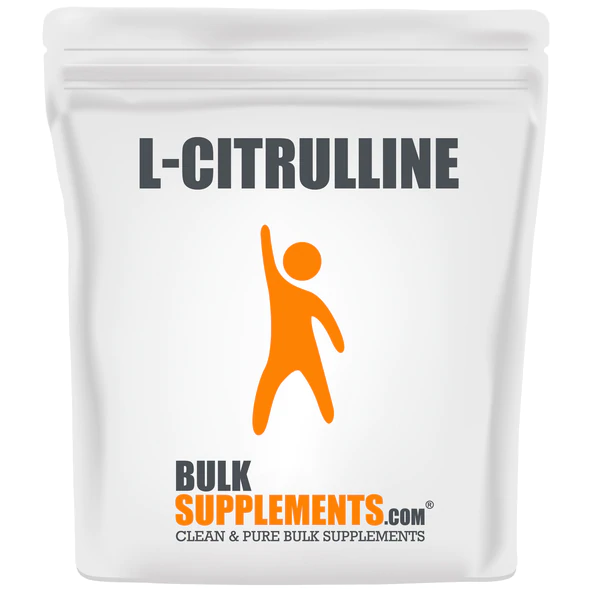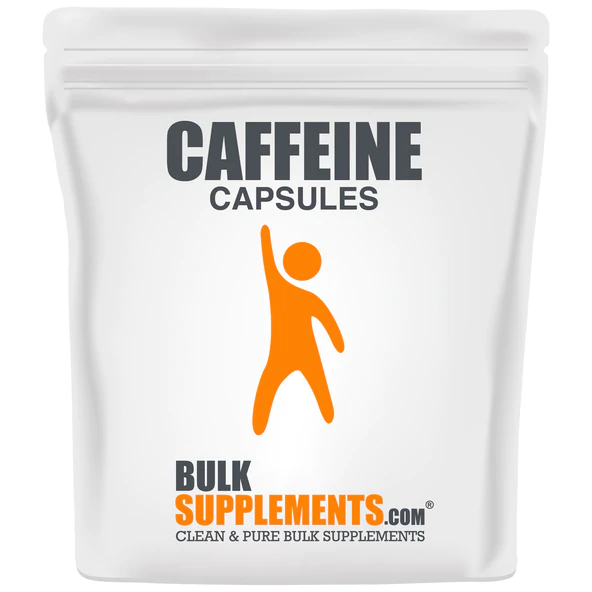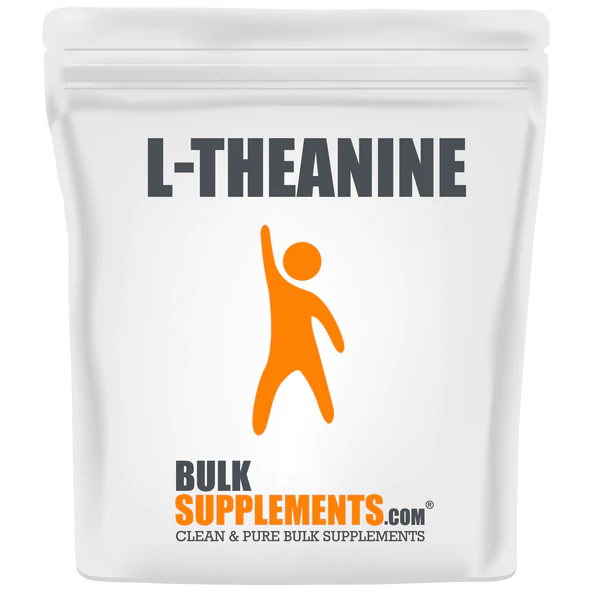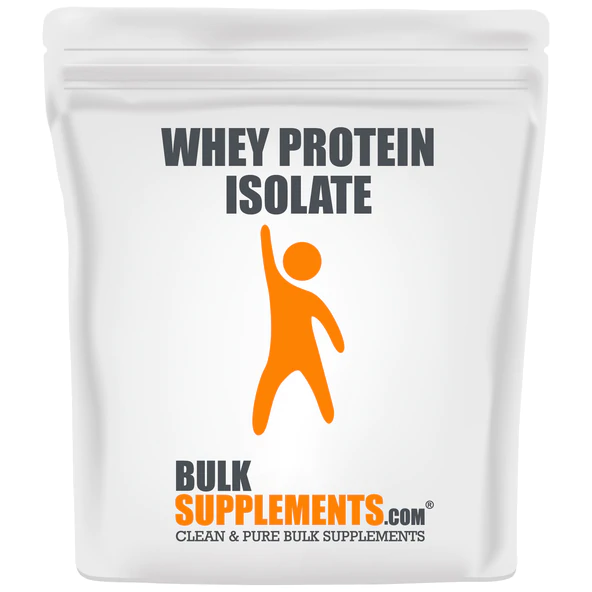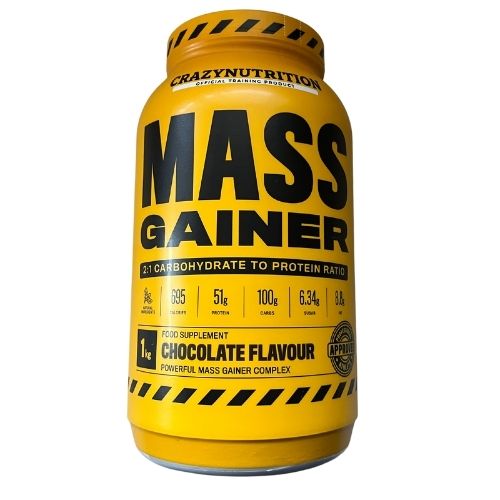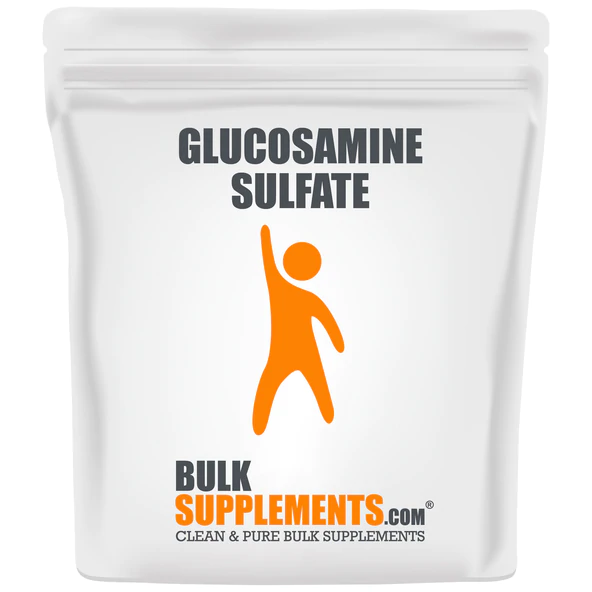Paralysis by analysis comes to mind when BJJ athletes look at the wide range of supplements to buy. You've got hundreds of different ingredients and formulations telling you they are scientifically proven (often they're not), along with hundreds of brands vying for your money.
How do you know which supplements are worth their weight in salt? And how do you know which will help you specifically for BJJ?
I'm going to break this down into the best pre, intra (during), and post-training supplements for BJJ so you can maximize your BJJ performance.
Best Pre-Training Supplements For BJJ
A pre-training supplement for BJJ should enhance endurance, strength, and focus. While you can go down the route of buying a preformulated pre-workout, they are often underwhelming underdosed. Not to mention many are not banned substance tested, making them dicey for those competing in IBJJF competitions.
Here are the best supplements with scientific backing proven to work and enhance performance.
Creatine Monohydrate
Creatine is one of the most misunderstood supplements on the market. So much so, I had to write a separate creatine for BJJ article to break down what it does and bust the myths surrounding this well-researched supplement.
To give a brief rundown of how creatine works, you have enough creatine to saturate the muscle when ingested as a supplement. What does that mean and do? Our muscles use adenosine triphosphate (ATP) for energy to contract. Triphosphate means three phosphate molecules.
These phosphate molecules bind to creatine to make phosphocreatine (PCr). As a muscle uses ATP for energy, it loses a phosphate molecule turning it into adenosine diphosphate, meaning two phosphates.
To turn back to ATP, it needs to replenish this phosphate. So, the stored PCr is used instantly, regenerating ATP that the muscle can use. This means you now have more energy stored for the alactic energy system.
Resulting in increasing strength by 8%, performing more reps at a given load by 14%, and enhancing anaerobic power [23,24]. Highly applicable to the sport of BJJ. Further, if you remember our little science lesson in the pre-training section, the accumulation of H+ ions leads to fatigue.
PCr consumes H+ ions, delaying the time to fatigue during very high-intensity exercise, hence performing more reps at a given load [25]. Creatine also enhances the ability to replenish glycogen, so you have more fuel to create ATP [26].
How Much Creatine Monohydrate To Take?
5 g per day is the recommended dose for creatine to see results. It’s as simple as that. It doesn't matter when you take it. Just make it a routine, so you don't forget. For example, with your post-workout shake or pre-workout meal.
Beta-Alanine
Beta-alanine is known for giving a tingly or itching feeling to the skin after ingestion. Many people equate this feeling to their pre-workouts “working.” But that's not the case. It is simply a harmless side effect of taking beta-alanine known as paresthesia [1].
Beta-alanine works by buffering hydrogen ions within the muscle extending your time to fatigue. Let me explain. During high-intensity exercise like BJJ, lactate starts to accumulate within the muscles. This is that “burn” feeling followed by the subsequent fatigue. An easy example of this is the leg fatigue you feel trying to hold closed guard too long.
But this "burn" is not caused by the rise in blood lactate but rather the associated increase in hydrogen ions (H+). As hydrogen ions accumulate, they turn the muscle environment acidic lowering the pH. This reduction in pH negatively affects the contractile ability of the muscle and, therefore, results in fatigue.
By taking beta-alanine, we can delay the time to fatigue by removing hydrogen ions, so the muscle remains at a neutral pH level for longer. It does this by increasing carnosine levels, which buffers or removes these H+ ions.
How do we know this works? Beta-alanine has been shown to extend high-intensity exercise duration in the 1–4-minute range meaning you can hold a higher intensity for longer [2,3].
How Much Beta-Alanine To Take?
30 mg per kilogram of body weight 60 minutes before training is the recommended dose. So, if you weigh 70 kg, 2.1 g of beta-alanine is what's needed. Beta-alanine is a supplement you'll want to take daily to increase carnosine levels in the body.
If you can’t handle the tingling sensation with higher doses, you can split your dose throughout the day. For example, 0.7 g three times per day. I always recommend buying the raw ingredients in bulk as they are far cheaper and last you a long time.
L-Citrulline
L-citrulline reports similar benefits to beta-alanine prolonging exercise but through a different mechanism. L-citrulline is a nitric oxide booster meaning it dilates the blood vessels so more blood can flow freely to the working muscles.
The more blood, the more oxygen delivered to the muscles improving endurance performance [4].
If you remember the NO Explode days, that product used L-arginine to boost nitric oxide. However, there was one BIG flaw with this product. L-arginine is poorly absorbed in the gut, so the nitric oxide boost is negligible.
L-citrulline is a precursor to L-arginine. Instead of being converted in the gut, it is converted to L-arginine in the kidneys, bypassing the absorption issue.
Therefore, L-arginine concentration increases, converting to nitric oxide and enhancing endurance.
Interestingly, nitric oxide may reduce the need for oxygen and ATP during exercise while enhancing the efficiency of the mitochondria to produce energy [4]. How do we know it works?
L-citrulline has been shown to increase the number of repetitions to failure in both lower and upper body exercise, improve maximal grip strength, reduce muscular soreness after training, increase time to exhaustion during moderate-intensity exercise, and improve the feelings of muscular fatigue after exercise [4,5,6].
All things necessary for BJJ!
How Much L-Citrulline To Take?
You should take L-citrulline every day. Anywhere from 3-8 g per day approximately 60 minutes before training. The research shows doses of 6-8 g to be most effective.
Sodium Bicarbonate
Wait. Isn’t sodium bicarbonate just baking soda? You are right on the money. The ingredient you use to bake your cake is a performance enhancer. In fact, I labeled it the best pre-workout for cardio. The reason no one is recommending this ingredient to you is twofold:
- Not many people know about it, and
- It is dirt cheap, so the affiliate commission for people is not worth the hassle.
But I only care about giving you proven, scientific, and practical recommendations that work. Sodium bicarbonate is one of them. Again, we are looking at similar outcomes to beta-alanine. Where sodium bicarbonate slightly raises the pH levels within the muscle extending the time before acidity gets too high and fatigue hits. It has been shown to increase power output and the time to exhaustion [7].
It has been extensively studied in most martial arts. For example, BJJ practitioners found no improvements in isometric leg strength to fatigue after taking sodium bicarbonate [8]. Wait, didn’t I say this was a performance enhancer?
It’s important to note that endurance in this study was measured with a test emphasizing force production hence why no improvement was likely seen. But luckily, we have research in Judo and elite wrestling.
We see judoka can perform more throws during the special Judo fitness test and produce greater upper body average and peak power relative to bodyweight after taking sodium bicarbonate [9,10]. But that’s not all!
Elite wrestlers could also perform more throws during a specific dummy throw test [11]. However, this was exclusive to male athletes.
How Much Sodium Bicarbonate Should You Take?
The recommended dose is between 0.2-0.4 g per kilogram of bodyweight 60-120 minutes before training [12]. Using our 70 kg BJJ athlete example, 14-28 g of sodium bicarbonate. That can be a lot to stomach. Some people may experience gastrointestinal discomfort taking this much at once.
So, another strategy is to take the total dose and split it into three doses throughout the day [13]. This way, you still get the benefits without the stomach problems.
Caffeine L-Theanine Stack
This is a lesser-known caffeine hack. If you drink caffeine regularly, you'll have vast experience with its performance-enhancing effects. Caffeine improves power and sprint performance by 6.5%, increases the number of reps performed in a set by 9.4%, enhances endurance performance by 2.22%, and power output by 2.9% [14,15].
What happens we add L-theanine to the mix? For one, it takes the "edge off" caffeine, so if you are sensitive and get jittery, L-theanine will mitigate this feeling [16]. It has a synergistic effect and is one of the original nootropic stacks.
Nootropics, also known as smart drugs or brain enhancers, focus on improving cognitive function. The benefit of the caffeine L-theanine stack is it enhances both physical and cognitive performance. Such as enhanced reaction time, speed of visual processing, working memory, alertness, and reduced tiredness and mental fatigue [17,18].
How Much Caffeine L-Theanine To Take?
The recommended dose for caffeine alone is 3-6 mg per kilogram of bodyweight. This is a large dose, so if you are not accustomed to caffeine, start with 100 mg. However, doses can be much smaller when combined with L-theanine.
A 2:1 ratio of L-theanine to caffeine is the optimal ratio, with a standard dose being 200 mg of L-theanine and 100 mg of caffeine taken 30-60 minutes before training.
Because L-theanine is being sold in higher doses, I've recently played around with 400 mg of L-theanine with 100 mg of caffeine and got a similar effect. So it is worth experimenting with both doses to find what works for you.
Best Intra Workout Supplements For BJJ
If you’re training hard for over an hour, it can be worth using a carbohydrate supplement to replenish energy. It will help you train harder for longer. While sports drinks are an obvious choice, carbohydrate supplements can also be used and are far cheaper. You will need to add flavor of some kind, however.
Maltodextrin
Maltodextrin is a simple form of carbohydrate. Essentially sugar without the sweetness. It mixes well with whey protein, a great post-workout option, but you don't want to sip on this concoction during training. It'll make you feel sick.
Instead, pure maltodextrin with some form of flavoring will do the trick. It could be some form of tablet fizzy or flavor drops. Depending on your carbohydrate requirements, you can add maltodextrin to your sports drink for a carbohydrate top-up as well.
But why carbohydrates from maltodextrin during training? Glucose is your primary fuel source to replenish energy for your working muscles. It is also the fastest to convert to energy. In contrast, fats and proteins need to go through various conversions to be turned into glucose.
By supplying the muscles with more glucose, we can potentially delay fatigue for 30-60 minutes [19].
How Much Maltodextrin To Take?
It seems taking 40-75 g of carbohydrates per hour is enough to enhance performance. If you know you have a tough two-hour BJJ session, starting to sip on carbohydrates after 30-45 minutes will keep you fueled for the rest of the session.
Best Post-Workout Supplements For BJJ
The goal of the post-workout supplement is to help with recovery. Not everything on this list is to enhance recovery directly after training with some of these supplements that you can take any time of the day.
Whey Protein
If there's one supplement to start with on this list, it is whey protein. If you struggle to reach your daily protein target or want a cost-effective and high-quality protein source, you’ve found it.
With strength training, supplementation with whey protein for 6 to 12 weeks was superior for building muscle and strength development compared to a pure carbohydrate supplement or alternative protein sources [21].
It has some of the highest essential amino acids (EAA) counts, spiking muscle protein synthesis (the building of new muscle) to the greatest extent. However, not everyone can digest whey protein well due to lactose intolerance, or some may be avoiding dairy products.
In the first instance, opting for a whey isolate ensures little to no lactose within the protein powder, making it easy to digest. For the second instance, beef protein powders make great alternatives.
Even though they don’t give the initial spike in the protein synthetic response, they result in similar improvements in building muscle and increasing performance as in whey protein [22].
How Much Whey Protein To Take?
This entirely depends on your bodyweight and protein requirements. 20 g of protein from whey has been shown to induce a muscle-building response, so one scoop of your favorite protein powder will work.
Mass Gainer
A mass gainer is not entirely necessary. But it can be an easy meal replacement after training if you are short on time. For example, hitting the midday class in your lunch break. In this case, a mass gainer makes perfect sense as you can pound a shake on your way back to work and have a full meal from it.
A mass gainer simply has a boatload of carbohydrates and protein with a small amount of fat to create a meal in powder form. But how do you know which one is right for you? Many are on the market, and many are filled with crap.
One of the best I’ve come across is Crazy Nutrition’s Mass Gainer. It’s one of the few that uses natural food ingredients as the carbohydrate source, such as sweet potato and oats, so you get additional micronutrient benefits, and it'll sit better in your stomach.
Further, it has digestive enzymes, so you don't feel bloated after drinking it.
How Much Mass Gainer To Take?
One serving of the chocolate flavor is 695 calories making it a pretty dense meal. If that’s too much, you can halve it giving you an easy 350 calories for recovery.
Fish Oil
Fish oil is not a magic supplement as it is often made out to be. But it is an excellent general health supplement to take. Taking fish oil can reduce triglyceride levels which, in turn, can potentially reduce your risk of heart attack [27].
Further, fish oil supplementation can reduce the resting heart rate in those somewhat out of shape [29].
You can't go out and buy any fish oil supplement. Most are low quality. You can tell by seeing how much of the fish oil capsule contains EPA and DHA. In a 1000 mg capsule, the most common ratio is 180 mg EPA and 120 mg DHA.
This means the other 700 mg is a filler. Look for double or triple-dose products that contain more than 50% EPA and DHA.
How Much Fish Oil To Take?
The consensus is at least 1 g of combined EPA and DHA per day. I like to be on the higher end, closer to 2 g combined EPA and DHA.
Vitamin D
Don’t sleep on vitamin D. As BJJ is an indoor sport, you may be missing out on this essential vitamin delivered from the sun. For example, indoor sporting athletes in this study were all moderately deficient in vitamin D or worse [28].
Supplementing with vitamin D is essential as it's associated with bone mineral density, influences muscle growth of Type II muscle fibers, improves strength and performance, may accelerate rehabilitation, and strengthens the immune system [30].
If possible, always opt for getting sun on your skin every day. But this isn’t always possible depending on the season and where you live.
How Much Vitamin D To Take?
1000-2000 IUs per day is the general recommendation. You can take it any time of the day like creatine, so find a time that becomes a routine.
Glucosamine Sulfate
Joint supplements are generally reserved for those suffering from osteoarthritis to reduce symptoms. While glucosamine can be used for this purpose, it may also play a protective role.
For example, soccer players supplementing with glucosamine sulfate reduced the rate of collagen degradation, indicating it may preserve your joints [31]. We know as BJJ practitioners that our joints can start to hurt when things have been cranked on!
How Much Glucosamine Sulfate To Take?
High doses of 3000 mg are recommended to slow joint degradation.
BJJ Supplements That Didn’t Make The Cut
Pre-Workout
While pre-workouts can be convenient, they are often underdosed, so you don't reap any of the ingredient's major benefits. For example, there is no way you can fit 10+ grams of sodium bicarbonate within a formulated pre-workout.
It is always better to form your own with pure ingredients so you can dose them correctly. Secondly, pre-workouts can be heavy on caffeine which is problematic for anyone sensitive to caffeine.
L-Glutamine
Glutamine is an amino acid already found in high concentrations in whey protein, meat, and eggs. If you eat these regularly, then you likely take more than enough. Unfortunately, evidence suggests glutamine does not aid in the muscle-building process, but it may improve gut health. This may be in individuals who are protein deficient or vegan, though.
BCAA
You may be wondering why I haven’t recommended branch chain amino acids (BCAAs) as a supplement to take during training. BCAAs serve no further benefit when getting adequate daily protein [20]. BCAAs are a waste of money and serve no purpose other than to flavor your water.
Summary
The best supplements for BJJ should directly enhance BJJ performance, recovery or fill gaps within your diet. Remember, supplements are to supplement your diet, and most of your nutrition should come from food sources.
References
1. Huerta Ojeda, Á., Tapia Cerda, C., Poblete Salvatierra, M. F., Barahona-Fuentes, G., & Jorquera Aguilera, C. (2020). Effects of beta-alanine supplementation on physical performance in aerobic–anaerobic transition zones: A systematic review and meta-analysis. Nutrients, 12(9), 2490.
2. Hobson, R. M., Saunders, B., Ball, G., Harris, R. C., & Sale, C. (2012). Effects of β-alanine supplementation on exercise performance: a meta-analysis. Amino acids, 43(1), 25-37.
3. Saunders, B., Elliott-Sale, K., Artioli, G. G., Swinton, P. A., Dolan, E., Roschel, H., ... & Gualano, B. (2017). β-alanine supplementation to improve exercise capacity and performance: a systematic review and meta-analysis. British Journal of Sports Medicine, 51(8), 658-669.
4. Gonzalez, A. M., & Trexler, E. T. (2020). Effects of citrulline supplementation on exercise performance in humans: A review of the current literature. The Journal of Strength & Conditioning Research, 34(5), 1480-1495.
5. Bailey, S. J., Blackwell, J. R., Lord, T., Vanhatalo, A., Winyard, P. G., & Jones, A. M. (2015). l-Citrulline supplementation improves O2 uptake kinetics and high-intensity exercise performance in humans. Journal of Applied Physiology.
6. Suzuki, T., Morita, M., Kobayashi, Y., & Kamimura, A. (2016). Oral L-citrulline supplementation enhances cycling time trial performance in healthy trained men: Double-blind randomized placebo-controlled 2-way crossover study. Journal of the International Society of Sports Nutrition, 13(1), 1-8.
7. Lavender, G., & Bird, S. R. (1989). Effect of sodium bicarbonate ingestion upon repeated sprints. British journal of sports medicine, 23(1), 41-45.
8. Ragone, L., Vieira, J. G., Laterza, M. C., Leitão, L., da Silva Novaes, J., Vianna, J. M., & Dias, M. R. (2020). Acute Effect of Sodium Bicarbonate Supplementation on Symptoms of Gastrointestinal Discomfort, Acid‐Base Balance, and Performance of Jiu‐Jitsu Athletes. Journal of Human Kinetics, 75(1), 85-93.
9. Artioli, G. G., Gualano, B., Coelho, D. F., Benatti, F. B., Gailey, A. W., & Lancha, A. H. (2007). Does sodium-bicarbonate ingestion improve simulated judo performance?. International journal of sport nutrition and exercise metabolism, 17(2), 206-217.
10. Felippe, L. C., Lopes-Silva, J. P., Bertuzzi, R., McGinley, C., & Lima-Silva, A. E. (2016). Separate and combined effects of caffeine and sodium-bicarbonate intake on judo performance. International journal of sports physiology and performance, 11(2), 221-226.
11. Durkalec-Michalski, K., Zawieja, E. E., Podgórski, T., Zawieja, B. E., Michałowska, P., Łoniewski, I., & Jeszka, J. (2018). The effect of a new sodium bicarbonate loading regimen on anaerobic capacity and wrestling performance. Nutrients, 10(6), 697.
12. Peart, D. J., Siegler, J. C., & Vince, R. V. (2012). Practical recommendations for coaches and athletes: a meta-analysis of sodium bicarbonate use for athletic performance. The Journal of Strength & Conditioning Research, 26(7), 1975-1983.
13. Rezaei, S., Akbari, K., Gahreman, D. E., Sarshin, A., Tabben, M., Kaviani, M., … & Naderi, A. (2019). Caffeine and sodium bicarbonate supplementation alone or together improve karate performance. Journal of the International Society of Sports Nutrition, 16(1), 1-8.
14. Astorino, T. A., & Roberson, D. W. (2010). Efficacy of acute caffeine ingestion for short-term high-intensity exercise performance: a systematic review. The Journal of Strength & Conditioning Research, 24(1), 257-265.
15. Southward, K., Rutherfurd-Markwick, K. J., & Ali, A. (2018). The effect of acute caffeine ingestion on endurance performance: a systematic review and meta-analysis. Sports Medicine, 48(8), 1913-1928.
16. Mason, R. (2001). 200 mg of Zen: L-theanine boosts alpha waves, promotes alert relaxation. Alternative & Complementary Therapies, 7(2), 91-95.
17. Haskell, C. F., Kennedy, D. O., Milne, A. L., Wesnes, K. A., & Scholey, A. B. (2008). The effects of L-theanine, caffeine and their combination on cognition and mood. Biological psychology, 77(2), 113-122.
18. Owen, G. N., Parnell, H., De Bruin, E. A., & Rycroft, J. A. (2008). The combined effects of L-theanine and caffeine on cognitive performance and mood. Nutritional neuroscience, 11(4), 193-198.
19. Coyle, E. F. (1992). Carbohydrate supplementation during exercise. The Journal of nutrition, 122(suppl_3), 788-795.
20. Plotkin, D. L., Delcastillo, K., Van Every, D. W., Tipton, K. D., Aragon, A. A., & Schoenfeld, B. J. (2021). Isolated leucine and branched-chain amino acid supplementation for enhancing muscular strength and hypertrophy: A narrative review. International journal of sport nutrition and exercise metabolism, 31(3), 292-301.
21. Naclerio, F., & Larumbe-Zabala, E. (2016). Effects of whey protein alone or as part of a multi-ingredient formulation on strength, fat-free mass, or lean body mass in resistance-trained individuals: a meta-analysis. Sports Medicine, 46(1), 125-137.
22. Sharp, M. H., Lowery, R. P., Shields, K. A., Lane, J. R., Gray, J. L., Partl, J. M., ... & Wilson, J. M. (2018). The effects of beef, chicken, or whey protein after workout on body composition and muscle performance. The Journal of Strength & Conditioning Research, 32(8), 2233-2242.
23. Rawson, E. S., & Volek, J. S. (2003). Effects of creatine supplementation and resistance training on muscle strength and weightlifting performance. The Journal of Strength & Conditioning Research, 17(4), 822-831.
24. Mielgo-Ayuso, J., Calleja-Gonzalez, J., Marqués-Jiménez, D., Caballero-García, A., Córdova, A., & Fernández-Lázaro, D. (2019). Effects of creatine supplementation on athletic performance in soccer players: a systematic review and meta-analysis. Nutrients, 11(4), 757.
25. Terjung, R. L., Clarkson, P., Eichner, E. R., Greenhaff, P. L., Hespel, P. J., Israel, R. G., … & Williams, M. H. (2000). American College of Sports Medicine roundtable. The physiological and health effects of oral creatine supplementation. Medicine and science in sports and exercise, 32(3), 706-717.
26. LOON, L. J. V., Murphy, R., Oosterlaar, A. M., Cameron-Smith, D., Hargreaves, M., Wagenmakers, A. J., & Snow, R. (2004). Creatine supplementation increases glycogen storage but not GLUT-4 expression in human skeletal muscle. Clinical science, 106(1), 99-106.
27. Wei, M. Y., & Jacobson, T. A. (2011). Effects of eicosapentaenoic acid versus docosahexaenoic acid on serum lipids: a systematic review and meta-analysis. Current atherosclerosis reports, 13(6), 474-483.
28. Valtueña, J., Dominguez, D., Til, L., González-Gross, M., & Drobnic, F. (2014). High prevalence of vitamin D insufficiency among elite Spanish athletes; the importance of outdoor training adaptation. Nutricion hospitalaria, 30(1), 124-131.
29. Mozaffarian, D., Geelen, A., Brouwer, I. A., Geleijnse, J. M., Zock, P. L., & Katan, M. B. (2005). Effect of fish oil on heart rate in humans: a meta-analysis of randomized controlled trials. Circulation, 112(13), 1945-1952.
30. de la Puente Yagüe, M., Collado Yurrita, L., & Cuadrado Cenzual, M. A. (2020). Role of vitamin d in athletes and their performance: Current concepts and new trends. Nutrients, 12(2), 579.
31. Yoshimura, M., Sakamoto, K., Yamamoto, T., Ishida, K., Yamaguchi, H., & Nagaoka, I. (2009). Evaluation of the effect of glucosamine administration on biomarkers for cartilage and bone metabolism in soccer players. International journal of molecular medicine, 24(4), 487-494.

